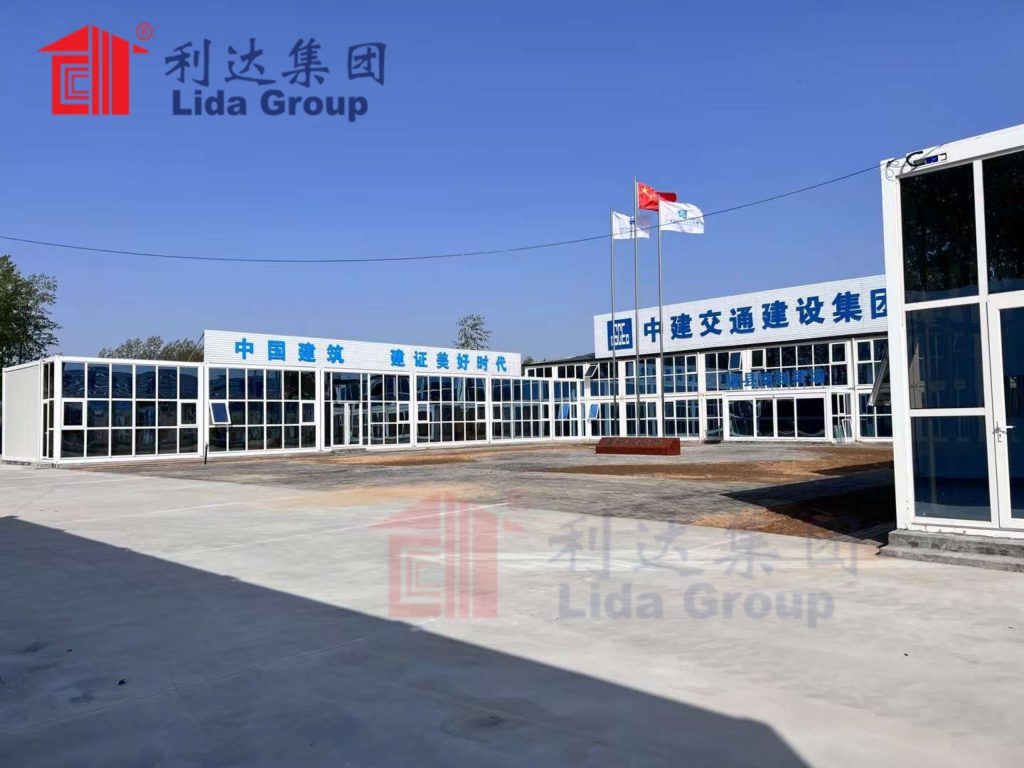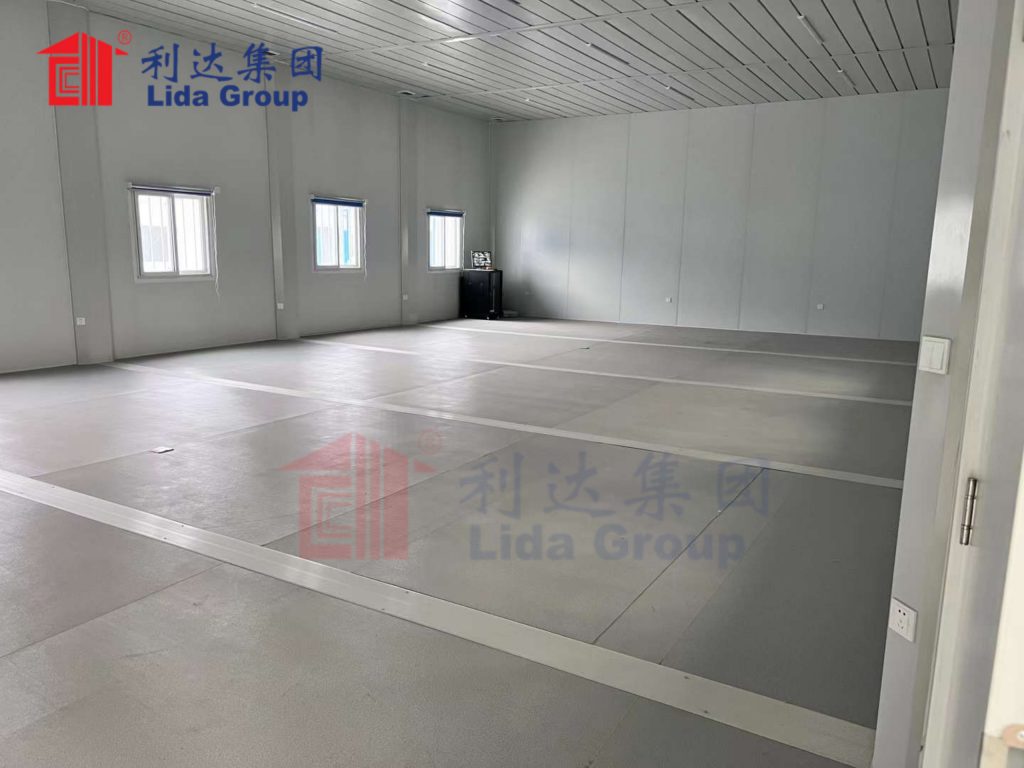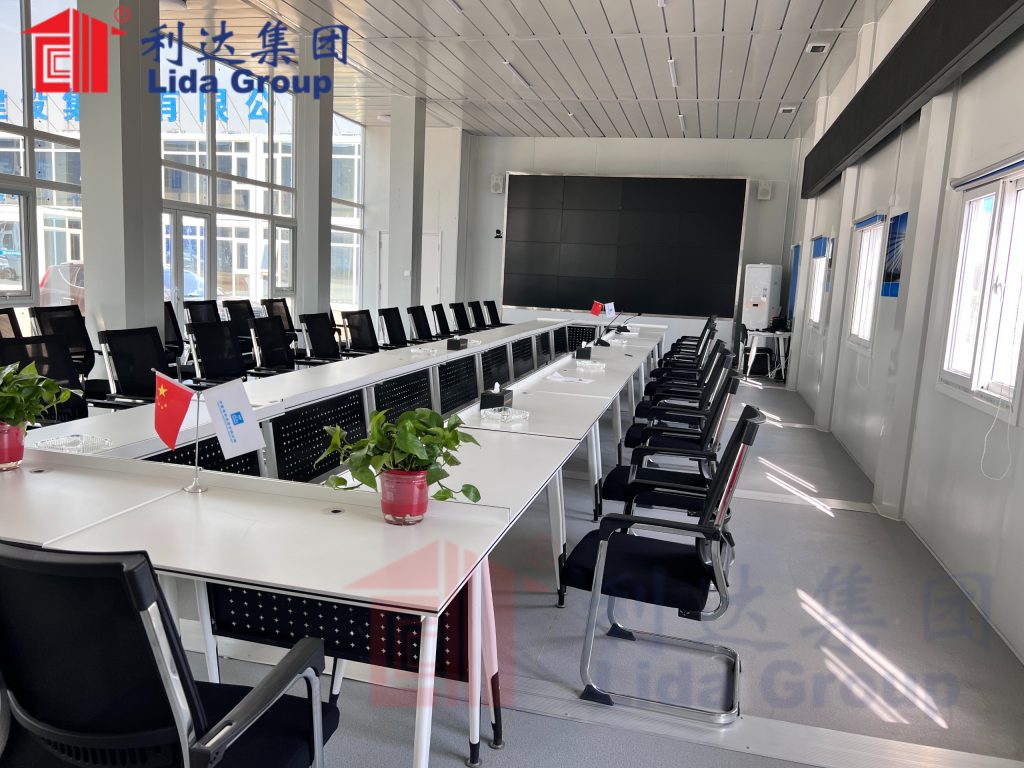A growing number of real estate developers are discovering shipping containers as an innovative material for affordable housing projects aimed at serving workforce populations in expensive urban areas. One such project currently under construction in Silicon Valley represents a new collaborative model between modular builders and community developers to convert abundantly available decommissioned containers into livable micro-homes through standardized modification kits.
California-based Fremont Housing Partners has partnered with Shanghai-based prefabrication giant Lida Group to build a 265-unit housing community in Sunnyvale comprised entirely of converted shipping container units organized into multi-story apartment blocks. The development site – previously an aging office park slated for redevelopment – presents an opportunity to help address the severe lack of reasonably priced housing options for technology company employees and service workers vital to the local economy.
According to Fremont Housing managing partner Chen, building traditional stick-frame or wood-frame apartments on the constrained 1.5-acre lot was not financially viable given high land costs and construction regulations in the Bay Area market. That’s when the idea arose to leverage Lida Group’s expertise in modular building through shipping container adaption and densify the property through vertically stacked container units.
“We were seeking out-of-the-box solutions to maximize housing numbers in a compact footprint while keeping rental rates accessible for the community’s workforce residents,” Chen explained. “When we learned about Lida’s standardized container conversion kits and modular construction process, it was a compelling alternative that could solve both density and affordability challenges.”

Lida Group has become renowned globally for pioneering container architecture and prefabricated modular housing construction since establishing operations 15 years ago. The company not only manufactures custom container homes and apartment buildings but has also developed multi-purpose conversion kits allowing developers to transform standard steel shipping containers into livable micro-units with minimal on-site labor.
For the Sunnyvale development, Lida Group provided 265 containers sourced from nearby West Coast ports that were no longer in commercial transportation use along with a complete set of pre-designed interior build-out components. These include prefab wall panels, flooring systems, windows, doors, plumbing fixtures and electrical/data wiring installed in an off-site factory setting for rapid on-site assembly.
“Our goal with conversion kits is to simplify and streamline the process of converting decommissioned containers to permanent housing while maintaining strict construction standards and code compliance,” said MU, CEO of Lida Group “Fremont Housing can now focus on community development aspects instead of retrofitting raw steel shells requiring skilled labor and equipment on a tight construction schedule.”
Unlike self-developed container builds which often require welding or cutting containers to modify openings, Lida’s drop-in systems feature pre-cut custom apertures strategically positioned to maximize interior space without compromising structural integrity. High-density foam spray insulation is applied between the double steel walls, providing superior thermal insulation to lower energy consumption.
Each converted container unit totals 200-300 square feet of functional living space optimized with generous windows, full galley kitchens and 3/4 bathrooms, energy-efficient heat pumps, operable skylights, laminate flooring and smooth drywall ready for tenant finishing touches. Outfitted units can be seamlessly stacked up to 5 stories high using Lida’s proprietary coupling and load-bearing connection hardware.

With the containers arriving fully outfitted from factory to site, on-site crews were able to rapidly assemble the structures in under 8 weeks – a fraction of the time needed using standard apartment construction methods. Final touches like siding installation, stairs, elevator cores and landscaping were simultaneously handled by subcontractors to complete the 265-unit complex within budget and on an accelerated 6-month schedule.
Impressed by the speed and seamlessness of Lida’s modular process, Fremont Housing believes the dramatic time savings in housing provision and quality control of factory production represents a game-changing development paradigm – especially for tight urban infill projects serving urgent communities needs. Monthly rents start at favorable rates 30-50% below market averages targeting workforce income limitations.
Reserved exclusively for local teachers, nurses, retail staff and others earning up to 120% of the area median income, monthly rental rates for studios and 1-bedroom units will start around $1600 and $2000 respectively including utilities. By comparison, average 1-bedroom apartment rents currently exceed $3000 nearby. Subsidized in partnership with the city and housing authority, the community will provide affordable accommodation options rare for those supporting local job growth.
While micro-housing or tiny homes have gained some popularity as one solution to high housing costs, concerns remain around long-term viability, tenure, and perceptions of such projects being temporary rather than mainstream residential communities. But developers behind these Sunnyvale container apartments believe quality build standards and community programming can help change public opinion.
“An important aspect is creating the feeling of a true neighborhood rather than just isolated living pods,” noted Chen. “We’ve designed outdoor gathering spaces, a gym facility, study areas, dog parks – all the amenities of a traditional apartment complex. And Lida’s containers feel much more akin to conventional construction than DIY mini-home conversions in terms of fit, finish and cohesive architectural layout.”
Environmental performance is also improved over standard buildings as each container home boasts excellent air-sealing and double walls for energy efficiency, large windows to maximize natural light, and access to community charging infrastructure for electric vehicles. Photovoltaic panels on top decks supply some renewable energy, while rainwater collection offsets water usage.
Perhaps more significant than sustainability attributes however is the potential catalytic role of such catalytic projects in accelerating transformation toward high-density modular building suited for both public and private sector housing delivery challenges. With access to large volumes of reusable shipping containers and factory-built conversion solutions, similar communities could rapidly scale up in communities nationwide helping close housing gaps.
“Our vision is not to compete with traditional construction businesses but help facilitate projects exceeding their capacities,” adds MU. “By lowering barriers of adoption for builders and developers seeking modular options, we can collectively address urgent pressures for multi-family housing, student housing, affordable senior living, disaster relief shelters – essentially any scenario requiring fast mass housing provision through lightweight, reusable and rapidly deployable methods.”
Indeed, community development experts note such prefabricated solutions could prove transformative for fast-tracking supportive housing programs addressing homeless populations or regionally displaced migrant workers, as well as post-disaster reconstruction scenarios. Multiple US state governments have even started exploring the use of converted container micro-home villages as part of long-term homeless accommodation strategies based on pilot programs demonstrating success to date.

Feedback from daily operations and long-term durability monitoring will help refine practices around container conversions transitioning from niche projects towards a standardized building component industry. After residents move into the Sunnyvale community later this year, Fremont Housing and Lida Group will continue assessing issues like interior air quality, noise insulation between units, aging impacts over decades, and resale/property appreciation to strengthen the evidence base that container architecture delivers sustainable, code-compliant housing equally deserving of mainstream acceptance.
While not for everyone given the reduced living spaces, container micro-units could prove part of the answer to intensifying housing shortfalls choking economic growth in high-cost areas amid constrained land supply and infrastructure challenges hampering conventional low-income housing solutions. As modular revolutionizes construction and reusable building technologies scale up to close gaps, communities like the one rising in Sunnyvale may foreshadow a reimagining of residential real estate for the 21st century.

Related news
-
Lida Group unveils new line of prefabricated and sustainable container apartment units designed for rapid construction and affordable living.
2024-04-02 11:17:58
-
Lida Group Leads the Way in Scalable, Sustainable Temporary Housing
2024-02-02 10:33:58
-
Lida Group lands Contract to Supply Hundreds of Temporary Prefabricated Container Homes for Wildfire Evacuees in Remote Region Lacking Shelter Infrastructure
2024-01-02 17:55:01
contact us
- Tel: +86-532-88966982
- Whatsapp: +86-13793209022
- E-mail: sales@lidajituan.com


